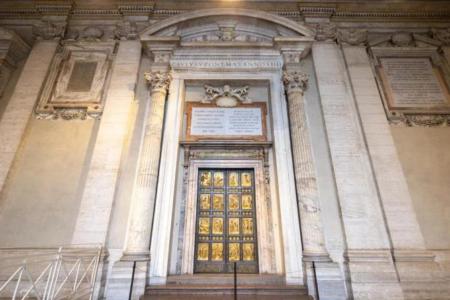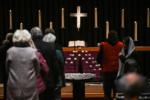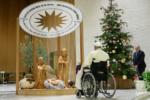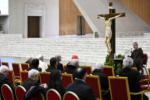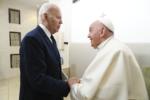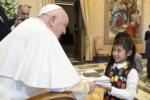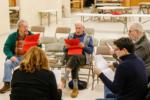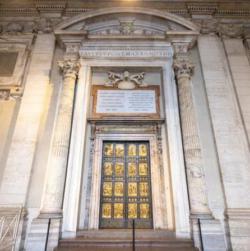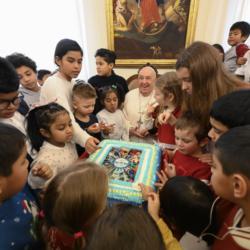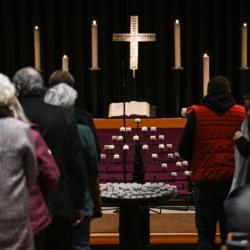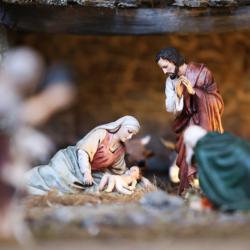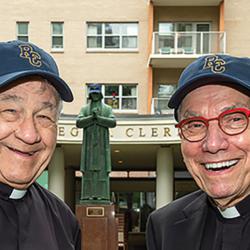Effective impact on abuse is focus of safeguarding body, cardinal says
VATICAN CITY (CNS) -- The new projects and developments at the Pontifical Commission for the Protection of Minors represent "a major shift toward a more impact-focused direction," said its president, Cardinal Seán P. O'Malley of Boston.
"The Holy Father has asked a lot from us, and we are all committed to making this work," the cardinal said, according to a press release from the commission May 8.
"We have sought the necessary resources to respond adequately, and we are confident in the plan we have laid out and the people we have working with us," he said in the statement, which was issued at the end of the commission's plenary assembly in Rome May 3-6.
"At times, this new direction has been both steep and fast for all of us reflecting the urgency of the challenges. This accelerated pace over the last six months has caused growing pains as we have attempted to respond to both short- and longer-term needs," the cardinal's statement said.
During the plenary, he said, "we developed key adjustments to our working methodology so as to clarify our different roles and to create a sense of common ownership of our mandate and of our collective responsibility for its implementation."
The statement alluded to some of the criticism made by Jesuit Father Hans Zollner, a leading abuse expert, who had recently resigned from the commission due to concerns over how the advisory body had been working over the past years.
In a statement March 29, Father Zollner said he felt there had been "a lack of clarity regarding the selection process of members and staff and their respective roles and responsibilities" and inadequate financial accountability, saying, "It is paramount for the commission to clearly show how funds are used in its work."
There should be greater transparency with decision-making processes, the priest wrote, saying, "Too often, there was insufficient information and vague communication with members on how particular decisions were taken."
A number of topics were discussed and decisions made during the May 3-6 plenary assembly at the commission's new office in Rome, the press release said, adding that it would soon publish a number of the documents cited in the statement on the commission's website, tutelaminorum.org.
Among those items were:
-- An update to the church's universal guidelines framework that was first issued by the Vatican in 2011 to assist the world's bishops' conferences develop national guidelines for dealing with cases of sexual abuse by clergy. The new "Universal Guidelines Framework will now be submitted to church leaders, victims' groups and other key stakeholders for a period of public commentary before final approval later this year," it said.
-- The creation of an "audit tool" to evaluate the adequacy of local church safeguarding guidelines.
-- A fund, made up of contributions from bishops' conferences, notably the Italian bishops' conference, for capacity-building programs "to ensure greater access to training and assistance to victims, their families and communities in poorer parts of the world," it said.
-- The commission approved a five-year strategic plan "identifying objectives, goals and performance indicators to measure progress and to provide accountability to stakeholders," it said.
Among its new tasks, it said, were how to respond promptly to the Pope Francis' request "to animate the church to combat the evils of online child abuse" and commissioning an in-depth study on "the theme of vulnerability in its various forms so as to equip church entities with robust measures to combat this emerging area of abuse."
Cardinal O'Malley had provided additional details about the commission's work during the group's audience with Pope Francis May 5.
For example, the cardinal said the external funding being used to hire new staff members and provide support in local dioceses came with "the help of a U.S. Catholic family foundation."
Thanking the pope for his "generous intervention," he said, "we took possession of a new commission location in downtown Rome and began planning for programs and services to victims' groups and their allies."
They also met with a group of survivors and held a moment of prayer with them "in the chapel of St. John the Baptist alongside our new offices. We recognized the need for a visible and physical center dedicated to the fight against sexual abuse in the church and a welcome center for those impacted by abuse."
"We have tried, Holy Father, to express your urgency and your sense of purpose in our important ministry of service and we have not wasted any time in implementing the mandate you have given us," the cardinal told the pope.
"You remain an example to us, of reaching to the peripheries, of being like a field hospital for victims of sexual abuse and, perhaps, of leaving nothing un-dared so that these little ones are kept safe in our church," he said.
